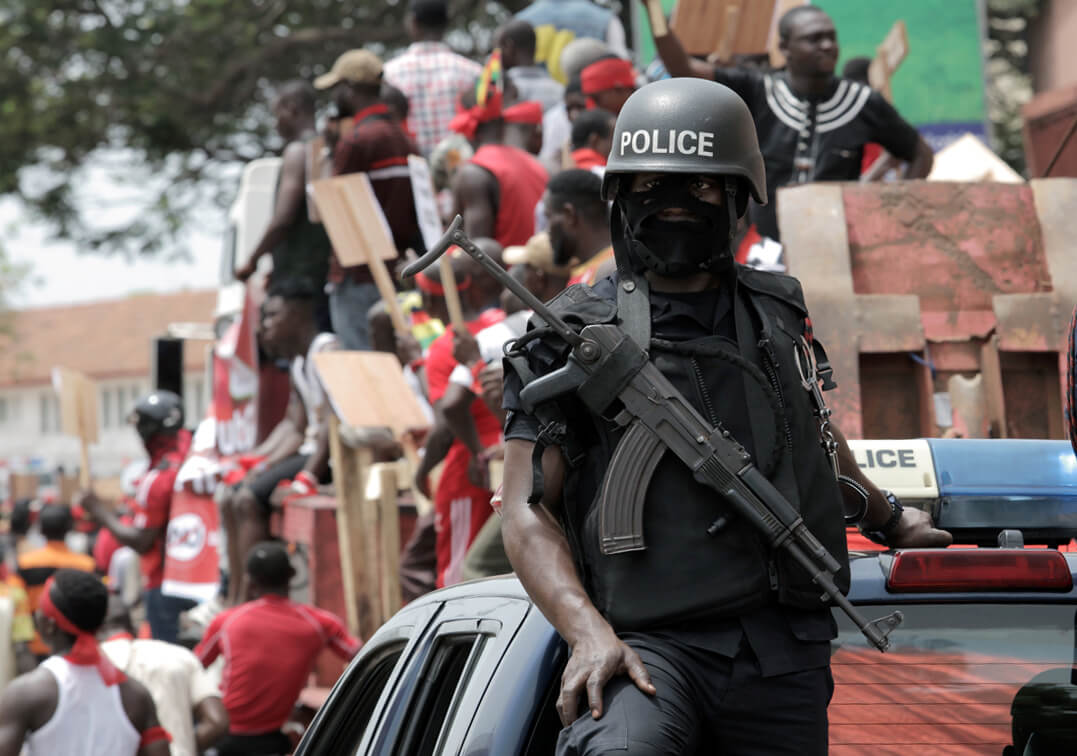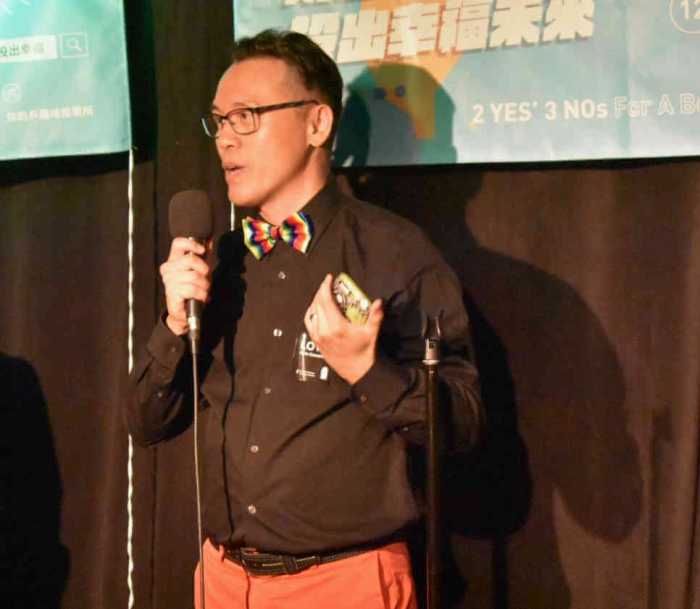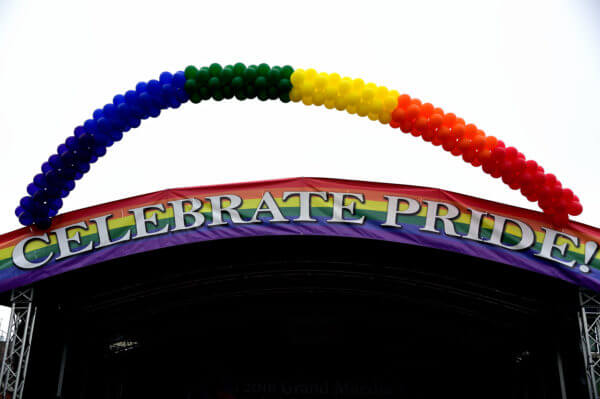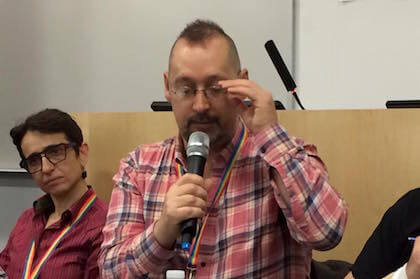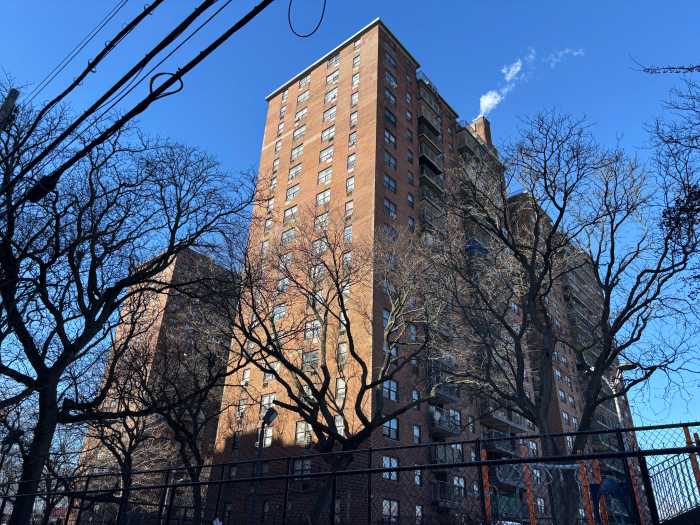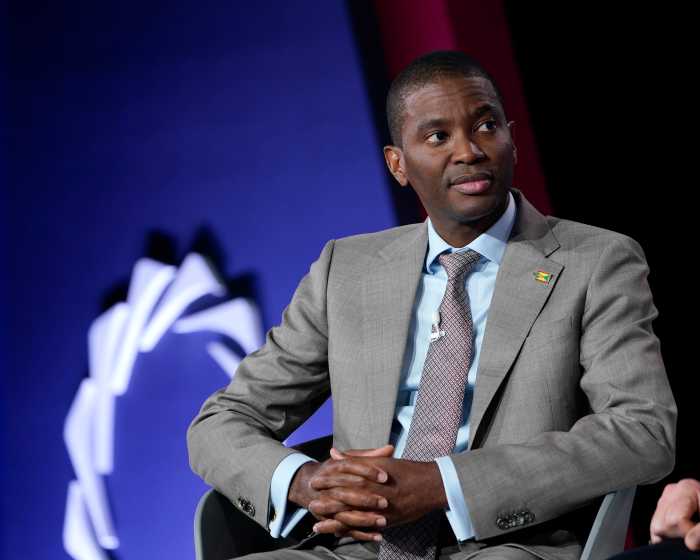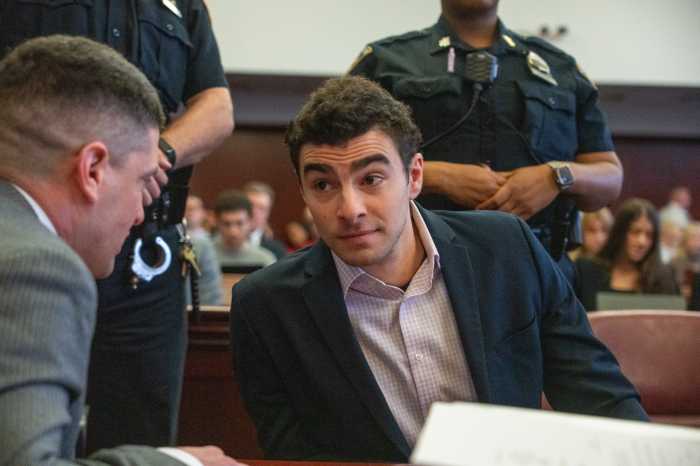Authorities in Ghana have charged and arrested 21 LGBTQ people for “unlawful assembly” after they held an LGBTQ rights safety training.
In a statement, advocates said authorities received a tip on May 20 about a gathering of several LGBTQ groups in Ho, Ghana, to discuss strategies to combat anti-LGBTQ discrimination. Shortly after, authorities apprehended 16 women and five men they suspected were “lesbian, gay, bisexual, transgender or intersex,” police said in a statement. According to a press release from the Ghana Police Service, in the meeting area, officers discovered LGBTQ-themed books and flyers such as “All About Intersex,” “All About Trans,” and “The LGBTQ+ Muslim.”
Same-sex relationships are criminalized in Ghana, though the constitution gives individuals the right to assemble. LGBTQ organizations have ripped the Ghana Police Service for apprehending queer activists and are urging for the detainees to be released.
Jessica Stern, executive director of OutRight Action International, a global LGBTQ human rights group, denounced authorities for the arrests.
“The arrest of LGBTIQ people holding a lawful, private gathering about protecting and supporting LGBTIQ people in Ghana is shocking and unacceptable,” Stern said in a written statement. “The basic human rights to freedom of assembly and association, enshrined in the country’s Constitution, should not be limited by anti-LGBTIQ opinions of bystanders or the police. Those detained should be released immediately, and an investigation into how such a blatant violation of rights could take place has to be held.”
For years, it has been illegal for men in Ghana to engage in consensual sex acts, with violators facing up to three years in prison for “unnatural carnal knowledge,” which includes “sexual intercourse with a person in an unnatural manner or with an animal,” according to the country’s criminal code. It is unclear whether the law bans queer women from engaging in sex acts.
Davis Mac-Iyalla, executive director of Interfaith Diversity Network of West Africa, affirmed the innocence of the advocates.
“I am deeply saddened that the Ghana police can act on false alarm to arrest and detain innocent citizens,” Mac-Iyalla said in a written statement. “The human rights defenders arrested and jailed did nothing unlawful; they were exercising their freedom of assembly and association.”
Mac-Iyalla added, “This illegal arrest is a reflection of the high level of discrimination against minorities in Ghana. I call on the government to condemn the arrest and order the release of the human rights defenders. I also call on religious leaders and all civil society locally and internationally to add their voices to this call.”
Other groups are blasting officials for targeting LGBTQ people despite their vows to keep the public safe.
“This arrest and detention is a clear incident of homophobia and an attempt by the Ghana Police Service to punish and abuse the rights of upright Ghanaians, whose only interest is to protect the human rights of people who the police fail to protect — especially sexual minorities,” said Robert Akoto Amoafo, who is president of the Alliance for Equality and Diversity, a social justice organization in Ghana.
The individuals have been denied bail and are due back in court on June 4.
The incident follows a tumultuous year last year for queer rights across the African continent. Nigerian authorities busted 50 men on homosexuality charges, Gabon imposed a ban on gay sex, and 16 queer people were arrested in Uganda for “suspicion of homosexuality.” Diplomatic friction also unfolded in Zambia last year, where US Ambassador Daniel Lewis Foote was booted from the nation after he complained about the 15-year sentences handed down to two gay men who were allegedly caught having sex at a hotel. Those two men were subsequently pardoned by Zambian President Edgar Chagwa Lungu.
Some gains were made earlier last year in other parts of Africa, however. A court in Botswana decriminalized sodomy and recognized some rights for transgender individuals, Kenya’s Court of Appeals upheld a High Court ruling that recognized an LGBTQ organization, and Angola unveiled a penal code that no longer included a ban on same-sex activity. Sudan also rolled out new laws last year that no longer called for the death penalty as punishment for gay sex.
To sign up for the Gay City News email newsletter, visit gaycitynews.com/newsletter.

